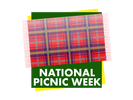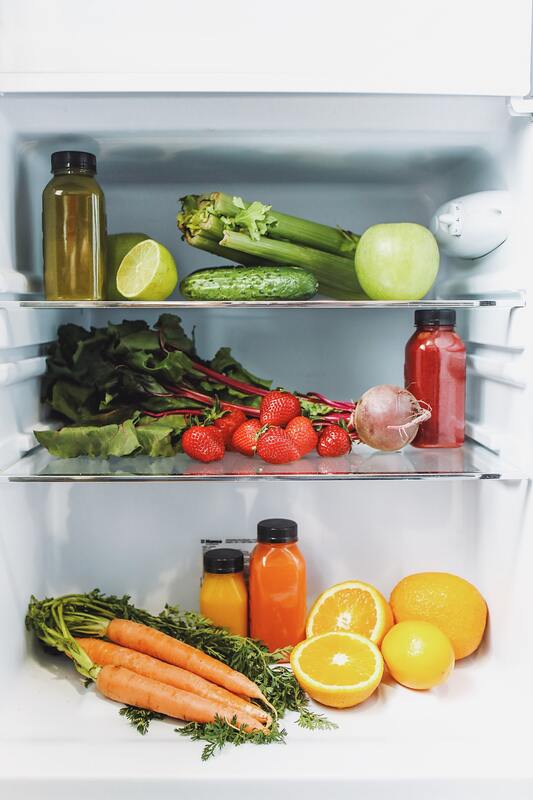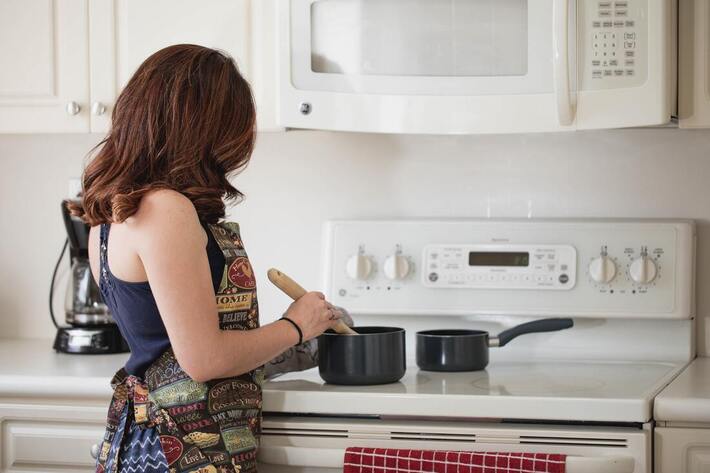Stay Safe This Summer:
Summer is the perfect chance to enjoy picnics and barbecues with family and friends. We have put together some advice to help ensure you don’t become unwell when enjoying eating outdoors. Many people assume food poisoning comes from restaurants, cafes and fast food outlets, but it’s also possible to get ill from food prepared at home.
The UK has an estimated 1,000,000 cases of food poisoning every year. The risk of getting food poisoning from Campylobacter, Listeria and Salmonella and some E. coli; rises over the summer months. New research from the Food Standards Agency indicates people could be putting themselves and their families at risk through lack of knowledge of the 4 C's of food hygiene: Chilling, Cooking, Cleaning and avoiding Cross-contamination.
If you’ve ever had food poisoning, you’ll know how unpleasant it can be, even for a fit and healthy person. For children, people already
in ill-health and older people, food poisoning can have serious, and sometimes even deadly, consequences. To protect your loved ones from foodborne illness this summer, safe food handling when eating outdoors is important.
The UK has an estimated 1,000,000 cases of food poisoning every year. The risk of getting food poisoning from Campylobacter, Listeria and Salmonella and some E. coli; rises over the summer months. New research from the Food Standards Agency indicates people could be putting themselves and their families at risk through lack of knowledge of the 4 C's of food hygiene: Chilling, Cooking, Cleaning and avoiding Cross-contamination.
If you’ve ever had food poisoning, you’ll know how unpleasant it can be, even for a fit and healthy person. For children, people already
in ill-health and older people, food poisoning can have serious, and sometimes even deadly, consequences. To protect your loved ones from foodborne illness this summer, safe food handling when eating outdoors is important.
Keep Your Food Chilled:
Chilling food properly helps stop harmful bacteria from growing, especially in the warm summer months. At barbecues and picnics, cold perishable food should be kept in the fridge or a cool box until serving time.
Cooking:
Cooking food at the right temperature and for the correct length of time will ensure that any harmful bacteria are killed. This is particularly important when cooking minced meat products such as beef burgers, sausages and kebabs as well as pork, turkey and chicken.
Always check that the meat is steaming hot throughout, there is no pink meat visible when you cut into the thickest part, meat juices run clear.
Burgers prepared at home should always be cooked all the way through until steaming hot. They should not be served rare or pink because harmful bacteria may be present in the middle of the burger, which can cause food poisoning.
Once served, dishes should not sit out for longer than two hours, or one hour if it's very hot outside.
Always check that the meat is steaming hot throughout, there is no pink meat visible when you cut into the thickest part, meat juices run clear.
Burgers prepared at home should always be cooked all the way through until steaming hot. They should not be served rare or pink because harmful bacteria may be present in the middle of the burger, which can cause food poisoning.
Once served, dishes should not sit out for longer than two hours, or one hour if it's very hot outside.
Cleaning:
Effective cleaning removes bacteria on hands, equipment and surfaces, helping to stop harmful bacteria from spreading onto food.
Wash hands before cooking and eating where possible. If you’re at a picnic and it’s not possible to wash your hands, use a wet wipe to clean your hands, then use a sanitiser on top to sterilise them.
Take care to keep all utensils and platters clean when preparing food and ensure you don’t mix those used to prepare raw and ready-to-eat dishes.
Don’t wash raw chicken or any other meat; it just splashes germs onto your hands, clothes, utensils and worktops. Thorough cooking will kill any bacteria present.
Wash hands before cooking and eating where possible. If you’re at a picnic and it’s not possible to wash your hands, use a wet wipe to clean your hands, then use a sanitiser on top to sterilise them.
Take care to keep all utensils and platters clean when preparing food and ensure you don’t mix those used to prepare raw and ready-to-eat dishes.
Don’t wash raw chicken or any other meat; it just splashes germs onto your hands, clothes, utensils and worktops. Thorough cooking will kill any bacteria present.
Avoid Cross-Contamination:
Cross-contamination is most likely to happen when raw food touches (or drips onto) ready-to-eat food, utensils or surfaces.
Store raw meat separately from ready-to-eat foods.
Use different utensils, plates and chopping boards for raw and cooked food.
Wash your hands after touching raw meat and before you handle ready-to-eat food.
Do not prepare food for others if you are unwell.
Store raw meat separately from ready-to-eat foods.
Use different utensils, plates and chopping boards for raw and cooked food.
Wash your hands after touching raw meat and before you handle ready-to-eat food.
Do not prepare food for others if you are unwell.
At The Picnic:
When taking food outdoors, it’s easy to let your usual practises slip. The time between preparing dishes and eating them tends to be longer than normal, as food is packed up for picnics in the morning and sometimes not eaten until early afternoon. In fact, 1 in 10 Brits often leave picnic food out for more than two hours in the summer. The FSA advises that food should be left out for no longer than two hours, whether in picnic season or at any other time of year. After this time, foods can become unsafe so plan ahead to keep your food cool until you’re ready to eat.
Clean up first, rinse fresh fruits (including those with rinds) and vegetables under running tap water before packing them in the cool box.
Keep cold food cold. Place cold food in a cool box with ice or frozen gel packs. Cold food should be stored at below 5°C to prevent
bacterial growth. Organise your cool box. Pack drinks in one cool box and perishable foods in another. If using freezer packs (frozen drinks work well for this purpose), distribute them throughout the box – not all at the bottom! Keep your cool box closed. Once at the picnic site,
limit the number of times the cool box is opened as much as you can. This helps to keep the contents cold for longer.
Pack away your picnic. Once you’ve served it, dishes should not sit out for longer than two hours, or one hour if it’s very hot outside. After this, the risk of bacteria increases and it becomes unsafe to eat, so best to throw it away when you get home. Pack away food so that your guests are not tempted to nibble later. To reduce waste, pre-plan portion sizes according to the size of your party and only pack what you need.
Clean up first, rinse fresh fruits (including those with rinds) and vegetables under running tap water before packing them in the cool box.
Keep cold food cold. Place cold food in a cool box with ice or frozen gel packs. Cold food should be stored at below 5°C to prevent
bacterial growth. Organise your cool box. Pack drinks in one cool box and perishable foods in another. If using freezer packs (frozen drinks work well for this purpose), distribute them throughout the box – not all at the bottom! Keep your cool box closed. Once at the picnic site,
limit the number of times the cool box is opened as much as you can. This helps to keep the contents cold for longer.
Pack away your picnic. Once you’ve served it, dishes should not sit out for longer than two hours, or one hour if it’s very hot outside. After this, the risk of bacteria increases and it becomes unsafe to eat, so best to throw it away when you get home. Pack away food so that your guests are not tempted to nibble later. To reduce waste, pre-plan portion sizes according to the size of your party and only pack what you need.
| fsa_picnic_week_info.pdf |


